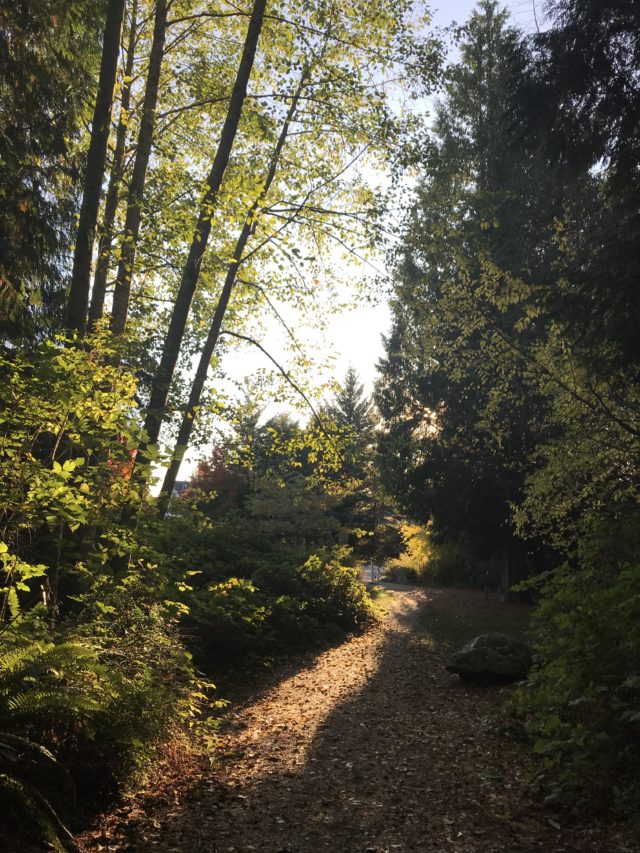Mini Blogs #IMMOOC

This week’s blog challenge for #IMMOOC is to write 3 mini-blogs of 250 words or less. It’s an opportunity to make our edu-thoughts succinct, but also invite the reader to your edu-thoughts with short responses. I am ready for the challenge but I have enclosed all 3 mini-blogs into ONE BIG BLOG. Why? I’m wary about posting 3 blogs this week in addition to my #EDUC471D100 weekly entry and moments of edu-inspiration. The frequency of my posts may deter those from reading my blog, but also how my do ME do people need? Really? It’s a lot of ME. Clearly I am overthinking this and well… that happens (for me) and I am self-conscious about it, but I’m going to do it this way… so here are my 3 mini-blog #IMMOOC responses below. Thanks for reading this blog’s preamble.
MINI BLOG #1
Do I know and build upon the strengths of those I serve?
I am stuck on the word “know.” I don’t actually know the strengths of those I serve, in the absolute. I learn about that they perceive as their strengths and build upon them by making connections to what they perceive as something they are not good at or don’t know about. I like to believe that I serve as a guide rather than someone who “knows” how to build strengths in others. I serve many types of people in the roles I play and how I like to build upon people’s strengths is building their sense of efficacy and self-confidence by reframing and redefining what they believe is true. My lens is focussed on what people can do and where they can go (if they like to). The deficit model does not work, nor does it build one’s sense of efficacy. My job is to remove barriers and lift others.
For example, I just did it. I was tutoring a student. 20 minutes into our session, I met his learning needs and we could have moved forward to complete the hour, but instead I acknowledged that he was feeling good about what we had learned and he was anticipating possible questions he may have (currently undetermined) for his upcoming unit test this week. Instead of feeling pressured to complete our session, I said “come back in a few days when you have figured out what questions you have in preparation for your unit test and we can resume our tutoring session then.” I like to put the student in the driver seat and I am the one who can facilitate and support his learning.
MINI BLOG #2
How do we share openly and regularly to further our own learning and development?
Blogging. For me, blogging helps me to reflect and look at my learning with a critical eye. It’s open for feedback, but also it helps me to make my aha-moments explicit. Blogging is public, so I feel that whatever I post/publish, it is something that I am celebrating (or deliberating) that is worthwhile to share but also something that I am committed to. When I teach my classes, my mantra is: THERE ARE NO SECRETS. While this is in the context of formative assessment, I feel that blogging (and Tweeting as well on Twitter) are awesome ways to connect with myself and others that is purposeful and meaningful.
As a compliment to reflection via blog and social media would be the idea of experimentation and trying out new ideas in your classroom or in your professional practice. The reflection is based on “something” and it comes from our experience. What I like to do is to try something “out of the box” with hopes of benefiting student learning. Try it a few times. Identify your mistakes and tweak it along the way. Learn from your mistakes. Listen to feedback. Take more risks and learning together with your students/learners. Co-create the outcome and then share. I love the process of learning and its IMPERFECTNESS. This is what learning in schools (and in our lives) is all about. It’s not about dwelling on failure but celebrating our courage to get back up again.
MINI BLOG #3
Do our professional learning opportunities mirror the learning we want to create for our students?
Truthfully… NO. It seems that many of the professional learning opportunities I participate in involve THE BIG HEAD… meaning, someone is telling me something. It’s not a learning opportunity where I am connecting with others (even though I may be doing that before or after the scheduled event) and sense-making with others to establish a shared (and deep) understanding of the subject matter. I had opportunities to learn outside from my friend and colleague (as she posts these learning opportunities on Twitter), but I have not been able to attend them due to time conflicts. My intention is to go one day… I would like to engage in professional learning that is experiential and dialogical with a learning community that is willing to push the envelope and ask the tough questions. I have not experienced this yet to its fullest capacity or vision… but I hope to soon.
I have participated in EdCamp several times. I like the organic nature of this professional learning opportunity. It’s professional development that comes from the grassroots of the practitioner in the company of other practitioners. The day is created from the input and contributions of those attending EdCamp, but also facilitated by those who are interested or passionate about the particular topics posed. Like minded people collect with other like minded people and authentic discussions may ensue. EdCamp is the closest professional learning opportunity to what I hope for. It’s missing the experiential aspect of immersing ourselves in the subject matter, but I do appreciate the dialogue and it’s learner-driven.